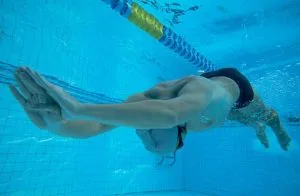Common Misconceptions About Swimming
Swimming is both a fun and healthy activity for all ages. However, some common misconceptions about this popular sport can negatively impact the swimming experience and even lead to health problems. In this article, we’ll discuss the most common misconceptions about swimming and their truths.
1. Myth: Swimming is only a summer sport.
The truth: Swimming is a sport that can be enjoyed year-round. Thanks to indoor swimming pools, you can enjoy swimming even during the winter months. In fact, swimming in winter can help strengthen the immune system.
2. Myth: Everyone can swim.
The truth: Anyone can swim, but some people may take longer to learn. Learning to swim requires patience, perseverance, and proper techniques. Additionally, those with certain health conditions may need to consult their doctor before swimming.
3. Myth: Swimming only works the arms and legs.
The truth is: Swimming is a sport that exercises the entire body. Not only the arm and leg muscles but also the abdominal, back, and even neck muscles are actively engaged during swimming. This improves overall body fitness and strengthens muscles.
4. Myth: There is an age limit for learning to swim.
The truth is: There’s no age limit for learning to swim. It’s possible to learn to swim at any age. In fact, learning to swim at a young age can help overcome fear of water and learn swimming techniques more easily. However, it’s important for older swimmers to be more careful and seek professional help.
Myth 5: Swimming does not help you lose weight.
The truth: Swimming is an effective activity that burns calories and aids in weight loss. Regular swimming boosts metabolism and increases fat burning. However, swimming alone isn’t enough for weight loss. A healthy diet and regular exercise are also important.
6. Myth: Swimming pools are unhygienic.
The truth: Swimming pools are cleaned and disinfected regularly. The chlorine in pool water kills bacteria and other microorganisms. However, some people may be sensitive to chlorine. In this case, pools that use alternative disinfection methods may be preferred.
7. Myth: Swimming damages the eyes.
The truth is: Swimming doesn’t damage your eyes. On the contrary, it strengthens your eye muscles and can be beneficial for your eyes. However, the chlorine in pool water can cause redness and irritation in some people. In this case, wearing swim goggles can protect your eyes.
8. Myth: Swimming triggers asthma.
The truth: Swimming doesn’t trigger asthma. On the contrary, it’s a recommended exercise for asthma sufferers. Swimming increases lung capacity and strengthens the respiratory muscles. However, it’s important for asthma sufferers to consult their doctor and carry their medications before swimming.
9. Myth: Swimming lessons are expensive.
The truth: Swimming lessons are offered at a variety of price points. You can find lessons to suit every budget. Additionally, some institutions and municipalities offer free or discounted swimming lessons.
10. Myth: Learning to swim takes a long time.
The truth: Learning to swim varies from person to person. Some people learn quickly, while others may need more time. However, regular practice and learning the right techniques can speed up the learning process.
Frequently Asked Questions (FAQ)
Question: What is the best age to learn to swim?
Answer: There’s no one best age to learn to swim. Learning to swim is possible at any age. However, learning to swim at a young age can help overcome fear of water and learn swimming techniques more easily.
Question: What muscles does swimming work?
Answer: Swimming is a sport that exercises the entire body. The arms, legs, abdominal, back, and neck muscles are particularly active during swimming.
Question: Does swimming help you lose weight?
Answer: Swimming burns calories faster and helps with weight loss. Regular swimming boosts metabolism and increases fat burning.
Question: How long do swimming lessons last?
Answer: The duration of swimming lessons varies depending on the course content and the student’s level. Typically, a swimming lesson lasts between 45 minutes and 1 hour.
Question: Why are swimming pools chlorinated?
Answer: Swimming pools are chlorinated to kill bacteria and other microorganisms. Chlorine helps keep pool water clean and hygienic.
In conclusion, there are many common misconceptions about swimming. Understanding these misconceptions can make your swimming experience more enjoyable and safer. Take action as soon as possible to learn to swim and incorporate it into your life. Remember, swimming isn’t just a sport; it’s also the key to a healthy and happy life. By taking swimming lessons, you can learn this sport like a professional.



